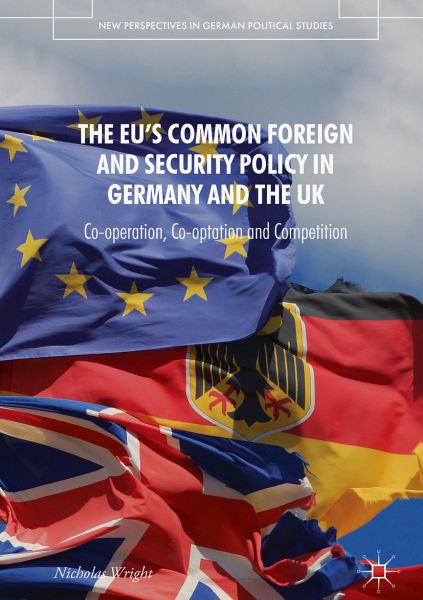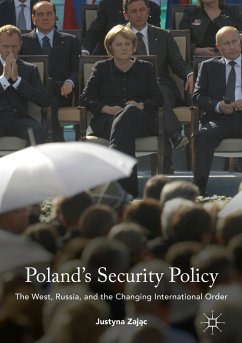
The EU's Common Foreign and Security Policy in Germany and the UK (eBook, PDF)
Co-Operation, Co-Optation and Competition
Versandkostenfrei!
Sofort per Download lieferbar
60,95 €
inkl. MwSt.
Weitere Ausgaben:

PAYBACK Punkte
30 °P sammeln!
This book examines the impact on member states of long-term foreign policy co-operation through the EU's Common Foreign and Security Policy (CFSP). Focusing on Germany and the UK, it provides an up-to-date account of how they have navigated and responded to the demands co-operation places on all member states and how their national foreign policies and policy-making processes have changed and adapted as a consequence. As well as exploring in depth the foreign policy traditions and institutions in both states, the book also offers detailed analyses of how they addressed two major policy questio...
This book examines the impact on member states of long-term foreign policy co-operation through the EU's Common Foreign and Security Policy (CFSP). Focusing on Germany and the UK, it provides an up-to-date account of how they have navigated and responded to the demands co-operation places on all member states and how their national foreign policies and policy-making processes have changed and adapted as a consequence. As well as exploring in depth the foreign policy traditions and institutions in both states, the book also offers detailed analyses of how they addressed two major policy questions: the Iranian nuclear crisis; and the establishment and development of the European External Action Service. The book's synthesis of country and case studies seeks to add to our understanding of the nature of inter-state co-operation in the area of foreign and security policy and what it means for the states involved.
Nicholas Wright is Teaching Fellow in EU Politics at University College London. He has worked on major EU-focused research projects examining the European Commission and General Secretariat of the Council; has written on a range of British and German foreign policy topics; and contributed to UK parliamentary inquiries on the foreign and defence policy implications of Brexit.
Dieser Download kann aus rechtlichen Gründen nur mit Rechnungsadresse in A, B, BG, CY, CZ, D, DK, EW, E, FIN, F, GR, HR, H, IRL, I, LT, L, LR, M, NL, PL, P, R, S, SLO, SK ausgeliefert werden.












